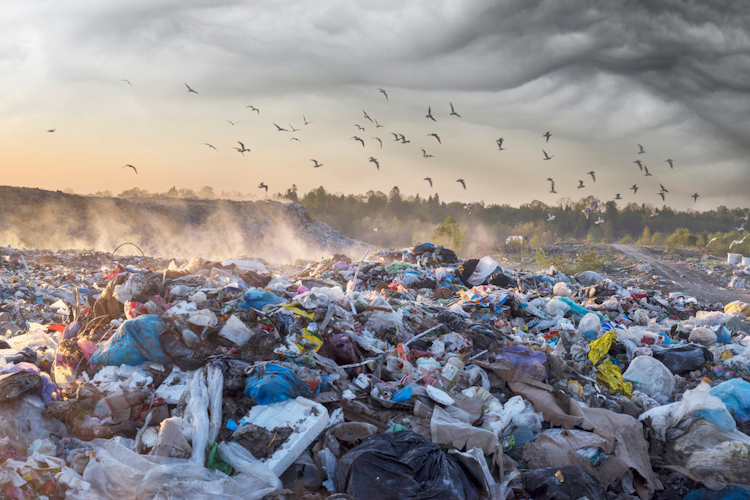When UN member states met in Geneva for what was supposed to be the final negotiating session of the Global Treaty to End Plastic Pollution, the negotiations collapsed under the influence of transnational corporations and oil-exporting states. Instead of an ambitious and legally binding plastics treaty along the whole life cycle of plastics—manufacture to waste disposal, including consumption and recycling, not much came out of this gathering.
A Plastics Treaty Already Stillborn
The plastic epidemic is of record-breaking scale and is one of the most pressing contemporary environmental challenges. Every year, hundreds of millions of tons of plastic waste enter oceans, soil and air, threatening biodiversity, human well-being, and ecological equilibriums. The United Nations Environment Programme (UNEP) estimates that in 2024 plastic consumption globally was more than 500 million tons, generating around 400 million tons of waste. On business-as-usual levels, plastic litter can reach three times the current level by 2060.
Who is responsible for plastic pollution
While consumers are usually blamed, waste management specialists make it central to the issue: they control global virgin plastic production, create and market disposable products, and frequently shift the environmental costs to lower-regulation countries. By virtue of their supply chains in internationalized production chains, they make an economic model dependent on plastic a reality. Dominant powers’ solutions are restricted to recycling campaigns and the implementation of “green” packaging, all softened by the use of voluntary standards.
But these measures are insufficient to reverse the trend because they would be part of a greenwashing logic that is advancing the appearance of change without making the profound and structural transformations in the consumption and production model that would be necessary in order to significantly reduce the global plastic legacy.
The negotiations broke down on a pivotal point of contention for whether or not they should include legally binding responsibility mechanisms to reduce plastic production. The oil-producing nations, whose raw material plastic production is based upon, do not want them.
Since the negotiations opened in 2022, seven of the largest companies – Dow, ExxonMobil, BASF, Chevron Phillips, Shell, SABIC, and INEOS – have deployed 70 lobbyists to the talks. During one session, 234 fossil fuel lobbyists attended, making up the largest delegation, even larger than the European Union and its member states. During this time, these seven firms had the equivalent of 6.3 million garbage trucks of plastic enter their records and increased their production capacity by 1.4 million tons. Dow alone reaped the profits of perhaps $5.1 billion in plastics while lobbying to weaken the treaty.
This influence is meant to steer the attention away to misguided solutions, while not addressing overproduction at its point of origin, thus guaranteeing their profits. Since plastic is 99% oil and gas dependent, plastic has been a cornerstone of the growth model of major oil companies and a model for oil-producing governments to develop.
The stakes are monumental. In the absence of political will and public interest-tilting power, negotiations can result only in an empty text. States must impose a binding treaty capable of upending the status quo and bringing about social and environmental justice.
The fight will be a long struggle. Green Peace reiterates its decades-long struggle against TNC impunity and for the right of victims and communities affected by abuses to have access to justice. Such struggle is being conducted not only on the ground, but also in the corridors of the UN Human Rights Council, where since 2014 an Intergovernmental Working Group has been in discussions to negotiate a binding UN Treaty on Transnational Corporations and Human Rights.
They will continue to act actively on behalf of these processes and struggles for social and environmental justice, in solidarity with social movements and committed organisations, so that the public interest is greater than private interests.
